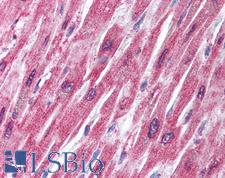Login
Registration enables users to use special features of this website, such as past
order histories, retained contact details for faster checkout, review submissions, and special promotions.
order histories, retained contact details for faster checkout, review submissions, and special promotions.
Forgot password?
Registration enables users to use special features of this website, such as past
order histories, retained contact details for faster checkout, review submissions, and special promotions.
order histories, retained contact details for faster checkout, review submissions, and special promotions.
Quick Order
Products
Antibodies
ELISA and Assay Kits
Research Areas
Infectious Disease
Resources
Purchasing
Reference Material
Contact Us
Location
Corporate Headquarters
Vector Laboratories, Inc.
6737 Mowry Ave
Newark, CA 94560
United States
Telephone Numbers
Customer Service: (800) 227-6666 / (650) 697-3600
Contact Us
Additional Contact Details
Login
Registration enables users to use special features of this website, such as past
order histories, retained contact details for faster checkout, review submissions, and special promotions.
order histories, retained contact details for faster checkout, review submissions, and special promotions.
Forgot password?
Registration enables users to use special features of this website, such as past
order histories, retained contact details for faster checkout, review submissions, and special promotions.
order histories, retained contact details for faster checkout, review submissions, and special promotions.
Quick Order
PathPlusTM TRAF2 Antibodies
TRAF2 is a member of the TNF receptor associated factor (TRAF) protein family. TRAF proteins associate with and mediate the signal transduction from members of the TNF receptor superfamily. This protein directly interacts with TNF receptors, and forms a heterodimeric complex with TRAF1. This protein is required for TNF-alpha-mediated activation of MAPK8/JNK and NF-kappaB. The protein complex formed by this protein and TRAF1 interacts with the inhibitor-of-apoptosis proteins (IAPs), and functions as a mediator of the anti-apoptotic signals from TNF receptors. The interaction of this protein with TRADD, a TNF receptor associated apoptotic signal transducer, ensures the recruitment of IAPs for the direct inhibition of caspase activation. BIRC2/c-IAP1, an apoptosis inhibitor possessing ubiquitin ligase activity, can unbiquitinate and induce the degradation of this protein, and thus potentiate TNF-induced apoptosis. In immunohistochemistry, TRAF2 has cytoplasmic positivity in all tissues throughout the body.
References: The UniProt Consortium. Nucleic Acids Res. 47: D506-515 (2019); Nucleic Acids Res. 2016 Jan 4;44(D1):D733-45, PMID:26553804;
1 PathPlusTM Antibody

☰ Filters
Products
Antibodies
(1)
Type
Primary
(1)
Target
TRAF2
(1)
Reactivity
Human
(1)
Mouse
(1)
Rat
(1)
Application
IHC
(1)
IHC-P
(1)
WB
(1)
ELISA
(1)
IF
(1)
IP
(1)
Host
rabbit
(1)
Product Group
PathPlus Cancer
(1)
Isotype
IgG
(1)
Clonality
polyclonal pc
(1)
Format
Unconjugated
(1)
Publications
Yes
(1)

Cancer
TRAF2 Rabbit anti-Human Polyclonal Antibody
Mouse, Rat, Human
ELISA, IF, IHC, IHC-P, IP, WB
Unconjugated
50 µg/$375
Viewing 1-1
of 1
product results










